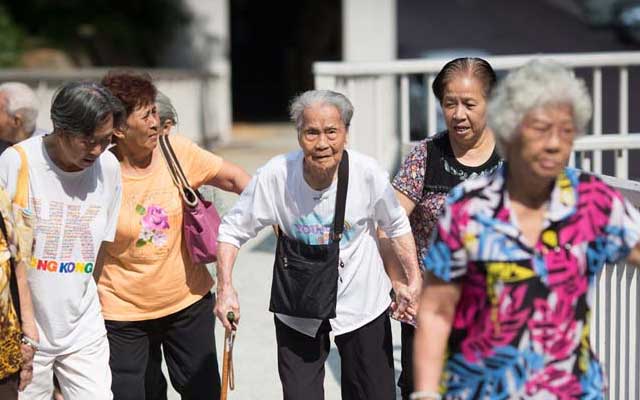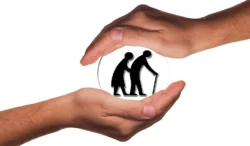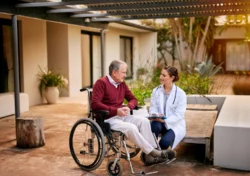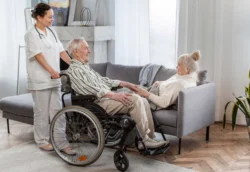Being self-sufficient and reliant is critical to the realization of a person’s value and self-confidence. It reduces stress and helps fulfill one’s personal needs without depending on others for help or approval. However, as people age, they become more vulnerable to various health issues such as chronic diseases, memory disorders, and mobility impairments, restricting their freedom. Mostly, these mobility impairments and this cognitive decline are often the root cause of household accidents.
According to the U.S. Centers for Disease Control and Prevention, one in every three seniors in America falls every year. The statistics further indicate that falls results in about 40 percent of all nursing home admissions and 25 percent of hospital admissions. Thankfully, with state-of-the-art technological innovations, like senior-citizen-friendly cell phones from Lively Direct, your elderly loved ones can stay connected to emergency services on-the-go when roaming around their homes.
Why Elderly Folks Need to Maintain Independence
Like other citizens, seniors deserve to live a happy and independent life with dignity. This is important because it can help boost their mental and physical health and help them achieve their life goals and desires. Lack of independence can be frustrating to the older generation. They have spent almost their entire lives being active and making decisions independently. The natural impact of aging can be devastating to older adults. However, aging adults must maintain their independence and self-reliance.
Moreover, independence can give senior citizens a sense of purpose, offering them opportunities for achievement. It can also boost their memory skills and gives seniors the freedom to contribute to the community and enjoy their daily activities. On the contrary, lack of independence tends to make a person feel less of an individual. Seniors have spent their whole life living independently, and developing this feeling can lead to anger, destructing behavior, and depression, which can be harmful to both the seniors and care providers.
The Effects of Diminished Independence
Diminished independence in senior citizens can lead to several personal and health problems. Some of the common ones come from declining mobility, including bad falls, declined health, and general well-being. Similarly, diminished independence can trigger unhealthy emotions like depression, fear, anger, and guilt. What’s more, these issues can complicate severe health conditions like diabetes, stroke, and heart diseases. It can also increase healthcare expenses as well as lead to higher mortality rates.
For that reason, families of senior citizens need to take necessary measures to help their elderly parents and grandparents to adapt to their aging bodies. First off, you might need to address safety concerns in place, including reducing their risk of falling, poisoning, and burns. Also, implement a plan to cater for changes in their daily lives, and support them in staying active. Most importantly, learn how to talk to the seniors regarding aging in place and always prepare for emergencies.
When is Caregiving Services Necessary?
While home care for the elderly can be great, once these chronic conditions advance beyond a certain level and render senior patients immobile, you may need to consider a professional caregiver to complete day-to-day tasks and promote optimal health. Leaving the job to a professional can help relieve the stress and tension of caring for your loved ones, which often leads to the caregiver’s guilt and burnout. However, you may also decide to use family caregiving services as long as you consider the quality of care to be provided. In most cases, professional caregiving tends to guarantee quality services that your loved ones deserve.
However, family caregiving can also be an option, but only if you have the right skills, resources, and time to care for the seniors. You may also need to consider the type of caregiving that makes sense to your financial situation. Hiring a professional can be costly, considering the high cost of medical services and board expenses. On the contrary, family caregiving is relatively cheaper and can attract financial support through tax breaks.
Tips for Staying Independent in Old Age
For those seniors who don’t require full-time supervision or those with good mental cognition, you may encourage them to engage in various activities to help them stay active at home. As seniors age, they tend to lose muscle strength, which increases their risk of falls, impacting their independence. For that reason, it’s important to have them engage in routine, low-impact activities such as water aerobics and daily walks. Besides focusing on fitness, ensure they use connected technology, participate in community services, and most importantly, they don’t skip medical appointments.







